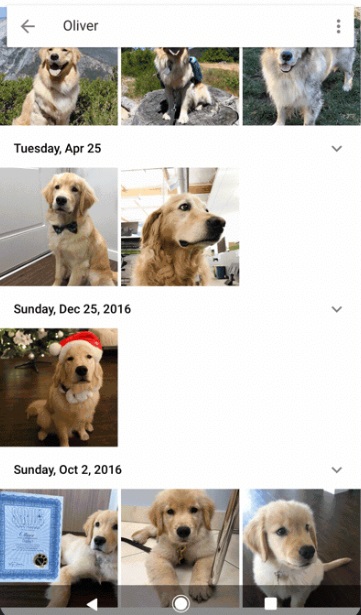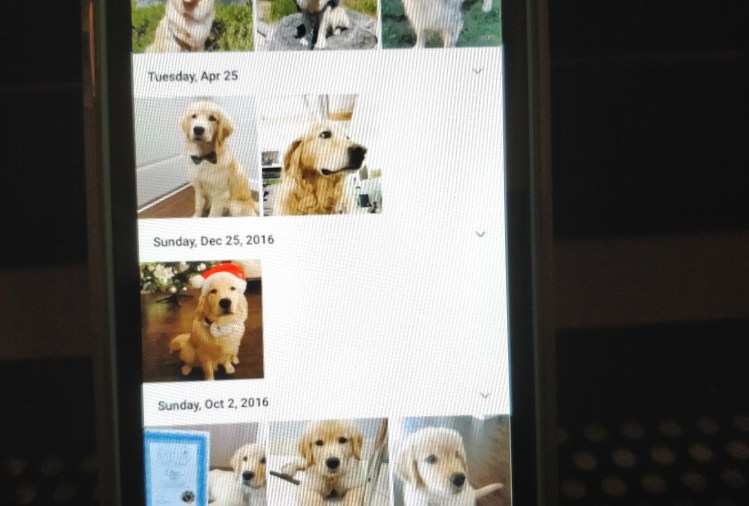Want smarter insights in your inbox? Sign up for our weekly newsletters to get only what matters to enterprise AI, data, and security leaders. Subscribe Now
Google Photos has been increasingly using AI-infused computer vision smarts for a while to help its 500 million-plus users organize their snaps, including auto-rotating tools and self-curating features.
Today, the company lifted the lid on yet another new feature from its bag of magic machine-learning tricks.
You could already search for generic “cats” and “dogs” in the Google Photos app using just keywords, but you could search for specific people such as your kids or a friend using facial recognition and their names (if you’d tagged them). But what you can now do is apply names to your cat and dog snaps too, so you can search for all photos that contain just Rover or Tiddles, or ones with you posing alongside them.
This means that rather than just surfacing every image within Google Photos that happens to contain a dog or a cat, or a specific breed (which is something you can do already too), you can now search specifically for your own pets.
AI Scaling Hits Its Limits
Power caps, rising token costs, and inference delays are reshaping enterprise AI. Join our exclusive salon to discover how top teams are:
- Turning energy into a strategic advantage
- Architecting efficient inference for real throughput gains
- Unlocking competitive ROI with sustainable AI systems
Secure your spot to stay ahead: https://bit.ly/4mwGngO

Above: Dog pics
A number of companies are turning to AI-powered technologies to help users organize their media or generally filter through the noise. Just last week stock-photo giant Shutterstock announced a neat new spatially aware visual search tool that lets you find photos by composition. And Facebook already lets you search for photos based on their content.
Google said that its latest image-recognition feature is rolling out in “most countries” from today.


